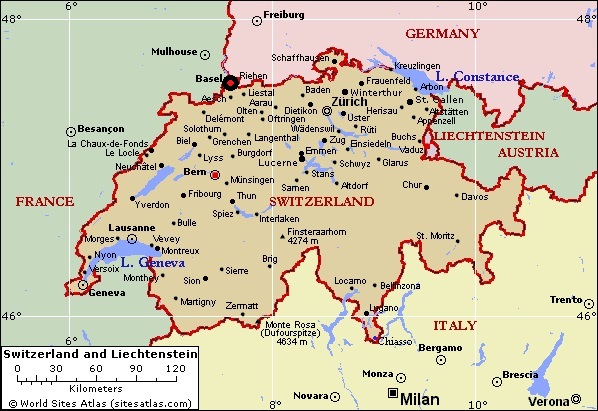The history of Switzerland since 1848 has been largely one of success and prosperity. Industrialisation transformed the traditionally agricultural economy, and Swiss neutrality during the World Wars and the success of the banking industry furthered the ascent of Switzerland to its status as one of the world's most stable economies.
Switzerland signed a free-trade agreement with the European Economic Community in 1972, and has participated in the process of European integration by way of bilateral treaties, but it has notably resisted full accession to the European Union (EU) even though its territory has been surrounded by EU member states since 1995.
 The Old Swiss Confederacy in the late medieval period (the Eight Cantons) established its independence from the House of Habsburg and the Duchy of Burgundy, and in the Italian Wars gained territory south of the Alps from the Duchy of Milan. The Swiss Reformation divided the Confederacy and resulted in a drawn-out history of internal strife between the Thirteen Cantons in the Early Modern period. In the wake of the French Revolution, Switzerland fell to a French invasion in 1798 and was reformed into the Helvetic Republic, a French client state. Napoleon's Act of Mediation in 1803 restored the status of Switzerland as a Confederation, and after the end of the Napoleonic period, the Swiss Confederation underwent a period of turmoil culminating in a brief civil war in 1847 and the creation of a federal constitution in 1848.
The Old Swiss Confederacy in the late medieval period (the Eight Cantons) established its independence from the House of Habsburg and the Duchy of Burgundy, and in the Italian Wars gained territory south of the Alps from the Duchy of Milan. The Swiss Reformation divided the Confederacy and resulted in a drawn-out history of internal strife between the Thirteen Cantons in the Early Modern period. In the wake of the French Revolution, Switzerland fell to a French invasion in 1798 and was reformed into the Helvetic Republic, a French client state. Napoleon's Act of Mediation in 1803 restored the status of Switzerland as a Confederation, and after the end of the Napoleonic period, the Swiss Confederation underwent a period of turmoil culminating in a brief civil war in 1847 and the creation of a federal constitution in 1848.
